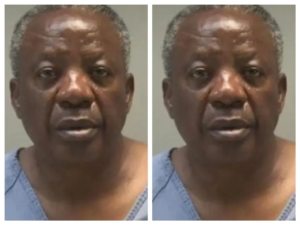President Donald Trump has once again delayed the clock on TikTok’s potential exit from the U.S., signing an executive order Thursday that grants the platform another 90-day lifeline as negotiations over its American ownership continue.
The announcement appeared Thursday morning on Trump’s Truth Social account, extending what has now become a saga of geopolitical tension, youth voter politics, and Silicon Valley maneuvering.
“He’s making an extension so we can get this deal done,” White House press secretary Karoline Leavitt told reporters. “It’s wildly popular. He also wants to protect Americans’ data and privacy concerns on this app. And he believes we can do both at the same time.”
READ ALSO: TikTok restores U.S. service after federal ban sparks controversy
This marks the third such extension since Trump took office. The first came on January 20, his Inauguration Day, as the app briefly went offline after a national ban, previously approved by Congress and upheld by the Supreme Court took effect. In April, Trump granted a second extension amid hopes of a breakthrough deal to create a U.S.-owned spinoff, which ultimately unraveled after China retaliated against Trump’s tariff threats.
Watch a recent episode of The BreakDown podcast below and subscribe to our channel PanaGenius TV for latest episodes.
The future of TikTok remains legally ambiguous. Although there is no explicit framework allowing Trump to keep postponing the ban, no legal challenge has yet been filed to contest it. Meanwhile, Trump, who has gained over 15 million followers on TikTok since joining last year, credited the platform for helping him engage younger voters. Back in January, he declared he had a “warm spot for TikTok.”
TikTok was quick to applaud Thursday’s move.
“We are grateful for President Trump’s leadership and support in ensuring that TikTok continues to be available for more than 170 million American users and 7.5 million U.S. businesses that rely on the platform as we continue to work with Vice President Vance’s Office,” the company said in a statement.
While some see the repeated extensions as savvy politics, others question their legality and efficacy. Democratic Senator Mark Warner of Virginia, vice chair of the Senate Intelligence Committee, issued a sharp rebuke.
“An executive order can’t sidestep the law, but that’s exactly what the president is trying to do,” Warner said. “The Trump administration is once again flouting the law and ignoring its own national security findings about the risks” posed by TikTok’s Chinese ownership.
The absence of clear legal boundaries hasn’t slowed the administration’s efforts or dampened TikTok’s momentum. Forrester analyst Kelsey Chickering said the company seems unfazed, even unveiling new AI video tools at the Cannes tech showcase this week.
READ ALSO: Supreme Court upholds TikTok ban, sets deadline for divestiture
“TikTok’s behavior also indicates they’re confident in their future, as they rolled out new AI video tools at Cannes this week,” she noted. “Smaller players, like Snap, will try to steal share during this ‘uncertain time,’ but they will not succeed because this next round for TikTok isn’t uncertain at all.”
Others, like Emarketer’s Jeremy Goldman, described the situation as stuck in political limbo. “The whole thing is starting to feel less like a ticking clock and more like a looped ringtone,” he said. “This political Groundhog Day is starting to resemble the debt ceiling drama: a recurring threat with no real resolution.”
For now, TikTok continues operating in the U.S., supported by Apple, Google, and Oracle, which reportedly received informal assurances from Trump’s Justice Department that they wouldn’t be targeted with legal penalties over the app.
Meanwhile, public opinion on the matter is increasingly divided. A recent Pew Research Center poll revealed that only one-third of Americans now support banning TikTok, down significantly from 50% in March 2023. Another third opposed a ban, while the rest were undecided. Of those in favor of a ban, 8 in 10 cited user data security as their primary concern.
READ ALSO: TikTok seeks emergency Supreme Court order to block U.S. ban amid forced sale threat










